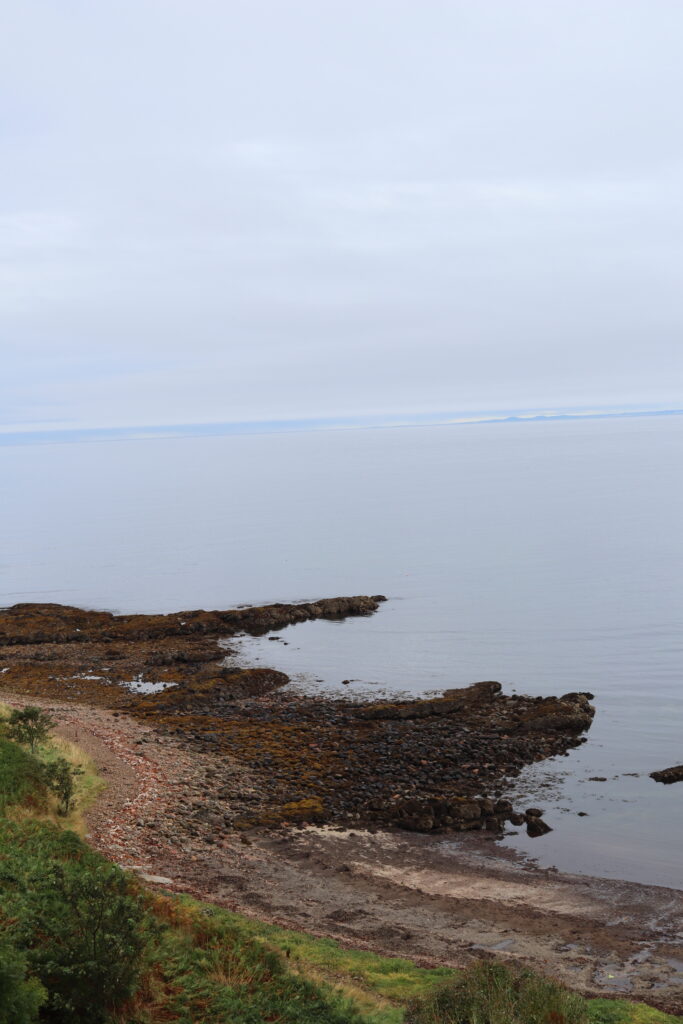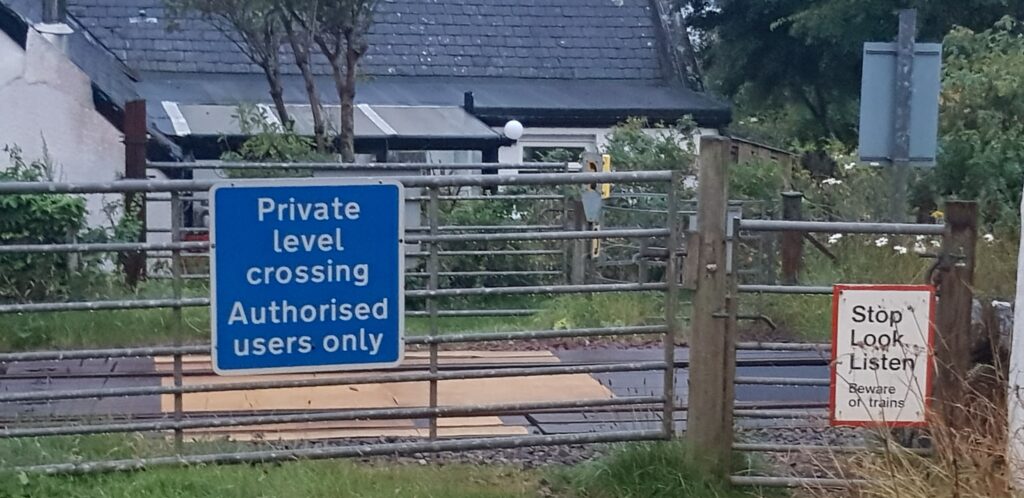
Recollections
An initial visit to the shore at Portgower in Sunderland in Scotland had taken place the year before. This was part of a rediscovery of a haunt from childhood, where until the age of 9, the family had transposed itself for holidays to my aunt’s house just outside Helmsdale at Navidale. I doubt if anyone could be unmoved by the changed surroundings through such young eyes – the scenery, geology, ecology, habitations and their occupants were all so different. There existed also a magical human network where an individual could demonstrate a knowledge of the affairs of not dozens of other individuals but likely of hundreds. While today we can provide social networks propped by technology from Seattle, this was more like a deep cognitive network that needed no external electrons to depend upon for its establishment and refreshment.
As the younger of three children it was always the way to be packed off to bed early to that first floor bedroom which overlooked the Moray Firth from where the warning lights of distant lighthouses would send out their comforting beams of light. The moon would often be seen to charm the restless sea on cloudless nights and where on occasion other lights would dance and flicker in the sky. Often, however, I would be too fearful of what could be lurking in the wardrobe for me to fall asleep.
On returning after a great length of time it was a short journey from Helmsdale to visit the shore at Portgower, often visited in previous times. To access the beach we had to cross the single track railway that passed through Helmsdale and up the Strath of the River Helmsdale onwards to Thurso.
We all paid dutiful attention to the process of crossing the track. A small group of cottages lay between the sea and the railway line and one in particular seemed curiously perched on a bank of shingle cast up over time by easterly gales. The cottage was the pride of a retired couple, entirely content with their abode that no doubt shook as the waves on occasion pounded the shore with restless energy. There was a conversation that I remember with the gentleman who was inclined to sit and watch the play of the waves upon the shore and confessed to being captivated by the variations to be observed, in the manner of decoding a dialogue with subtle repetition. It was like being aware of a mystery that could not be solved though interest in it never diminished. I have some memory of seeing his better half – medium height with perhaps round spectacles. And so we passed the remainder of the day on this shore of the Moray Firth at a latitude higher than that of Labrador.
We would return a year later to again cross the railway track to access the shore at Portgower. Passing the cottage we had come across previously, it looked this time forlorn and unwanted, lacking of attention and order, as if discarded as an afterthought. On mentioning this to my Aunt, now long time settled in Edinburgh, she knew all the details of the tragedy that had occurred. The elderly lady had been struck by a train on returning from a shopping trip and where the train had for some reason probably operated at a non-scheduled time. The driver of the train although not physically injured, had been challenged to cope with the trauma of the incident. There are fragments of information here, but not a complete story – of a life cut short and at least one other diminished.
Postscript
Returning to the same location after another period of many years, I was curious to make observation of any changes there. This time the railway crossing was somewhat intimidating – implying there was no right of way for the casual tourist to cross. I did not seem to recognise the cottage on the shingle bank of previous memory among the remaining habitations there. I left the location more unsure of the power of memory as a faithful observer.
